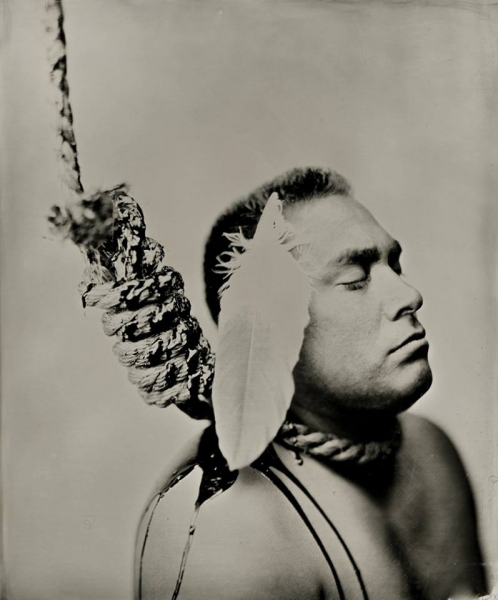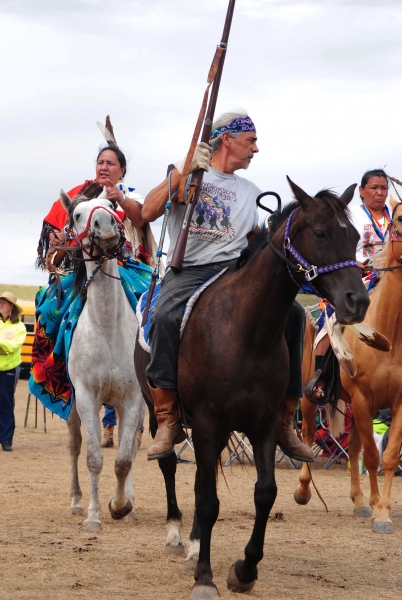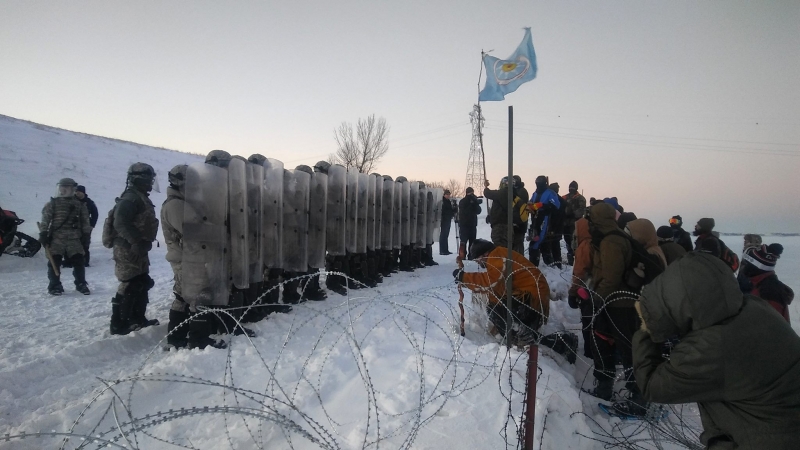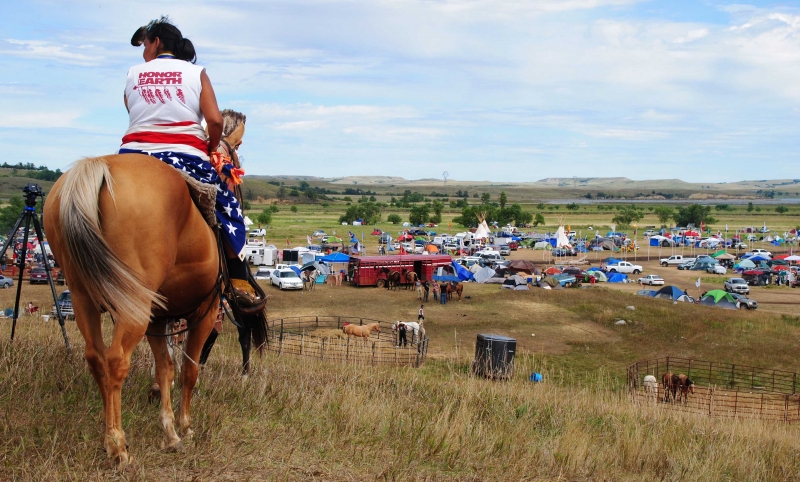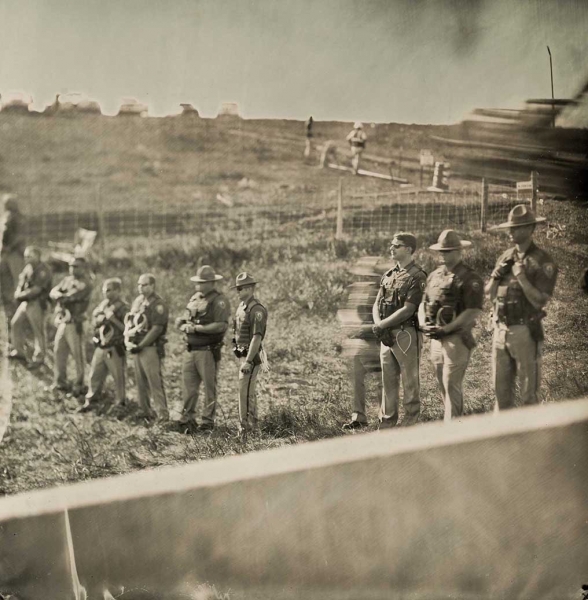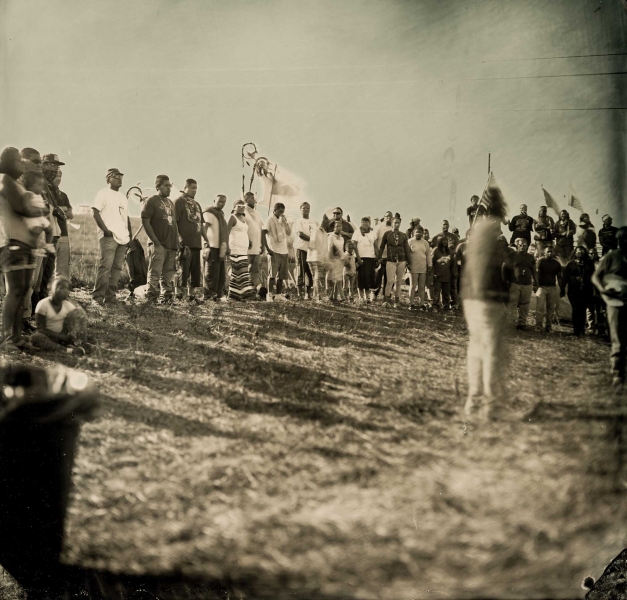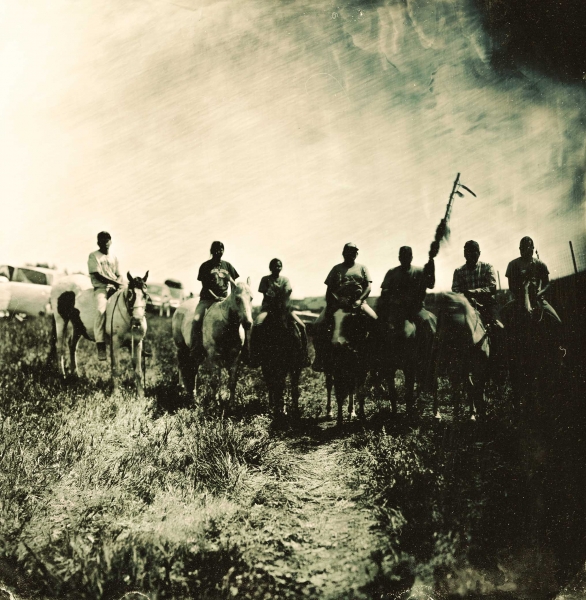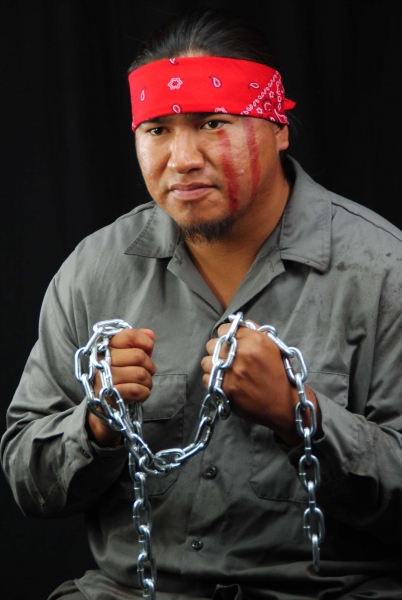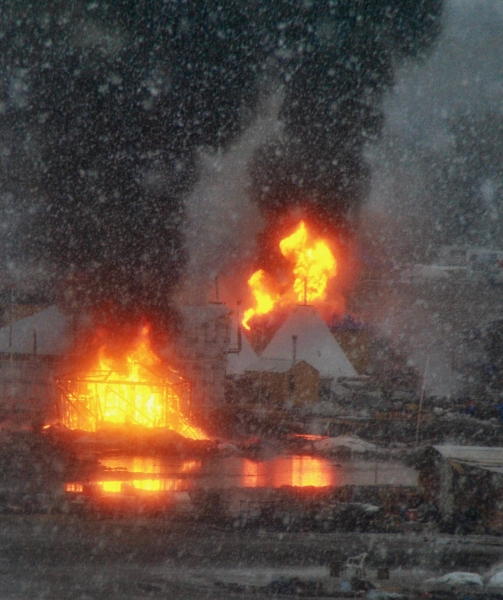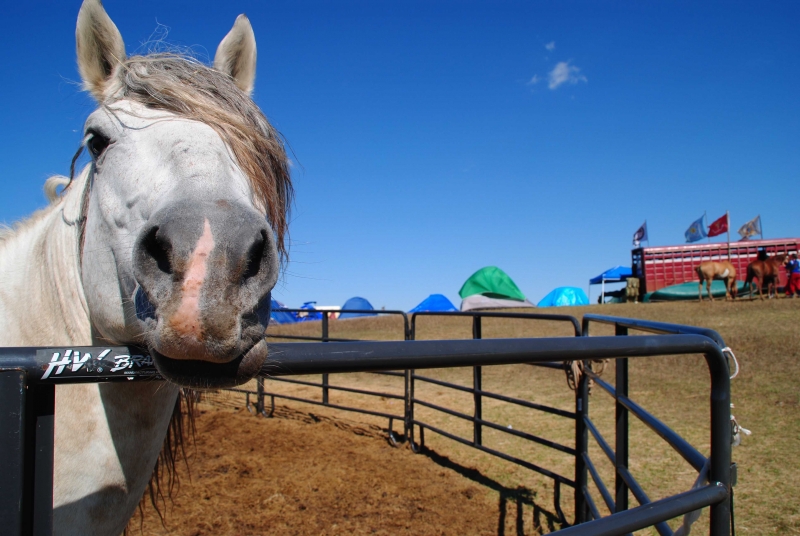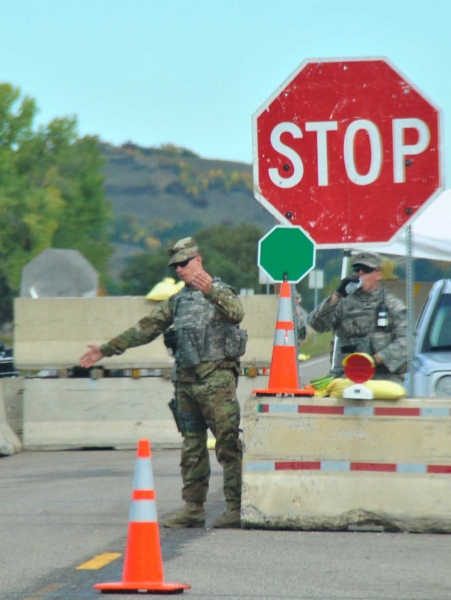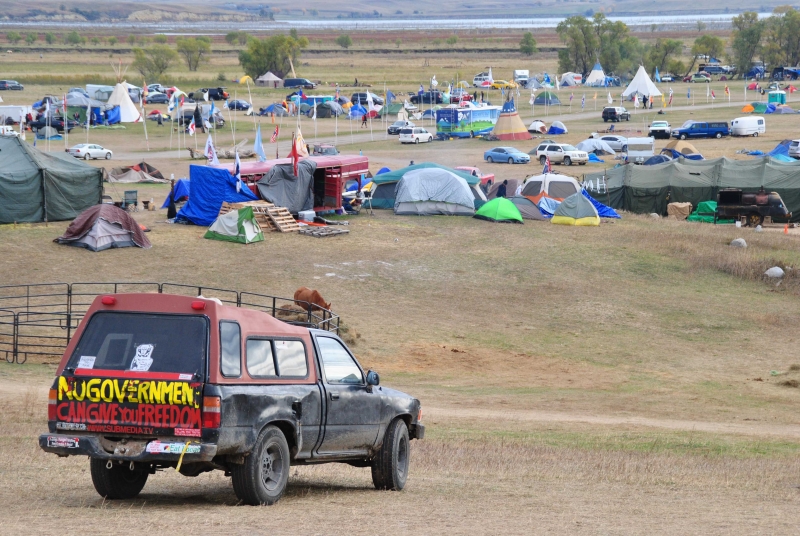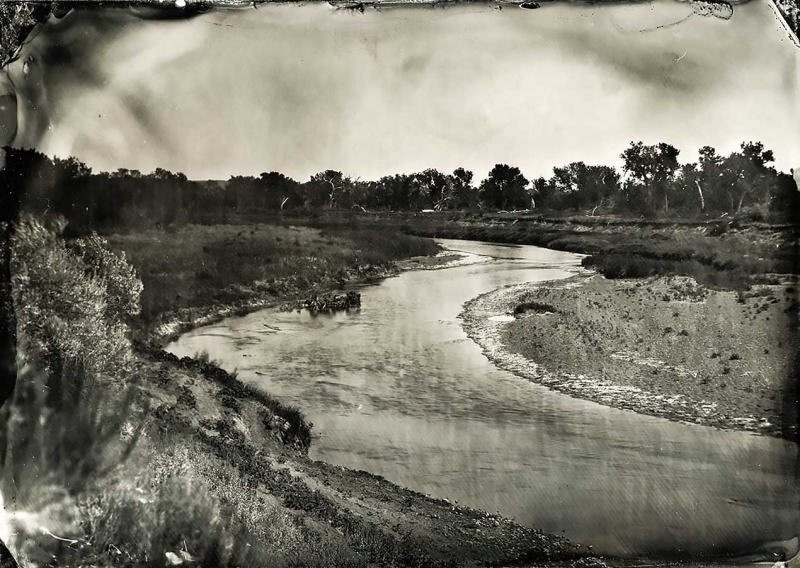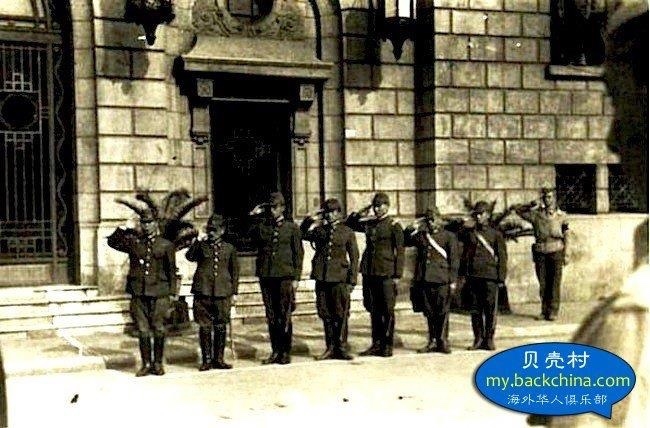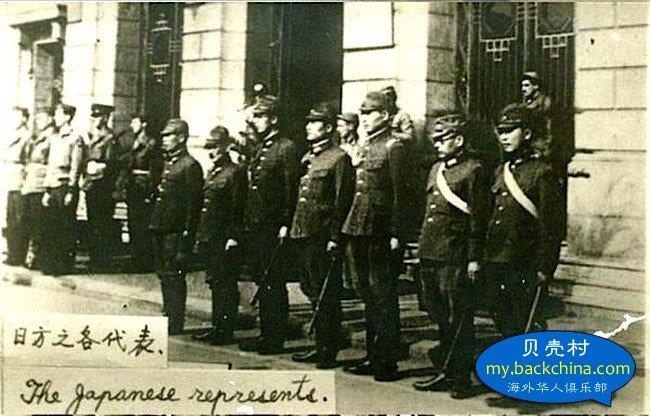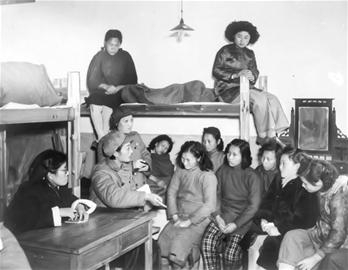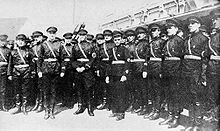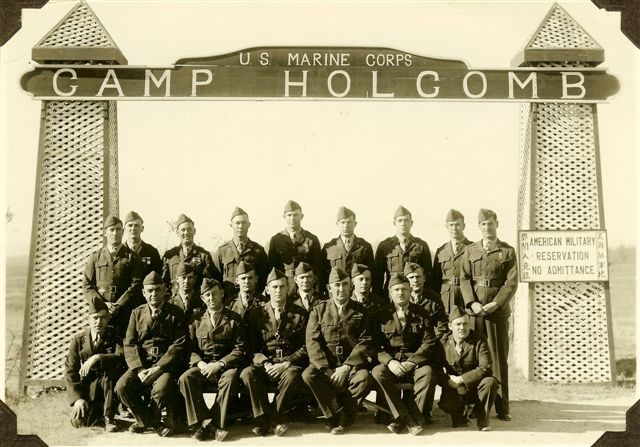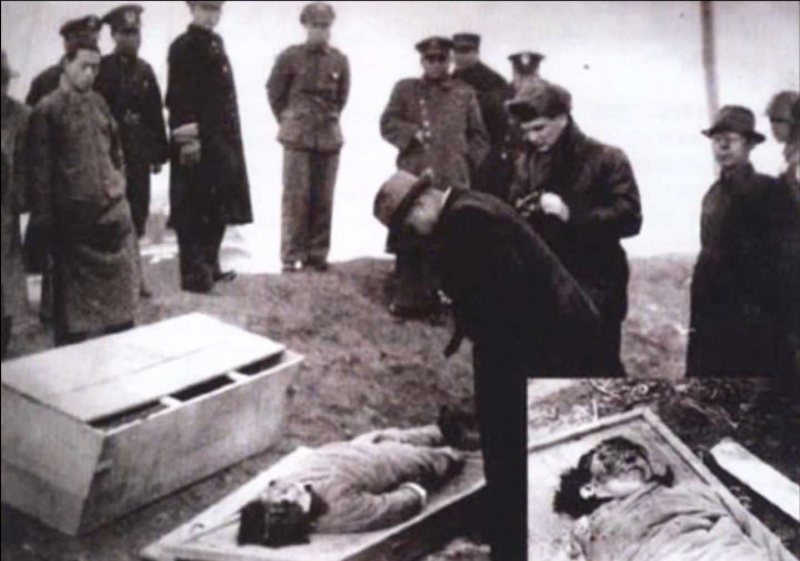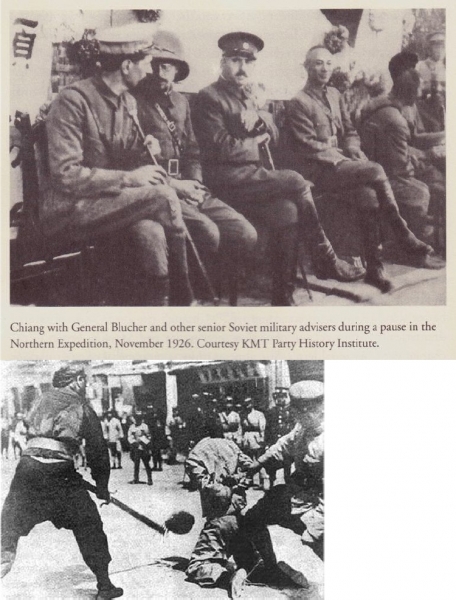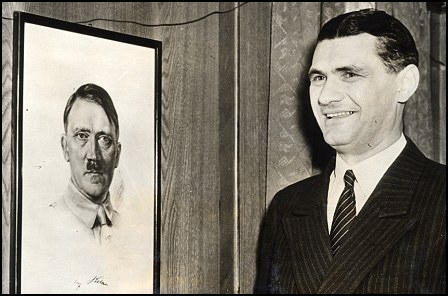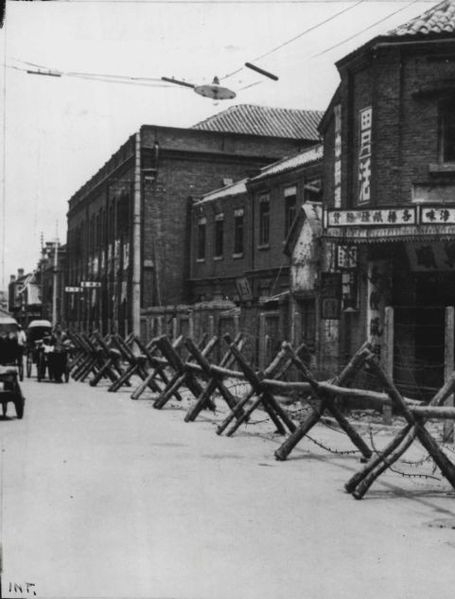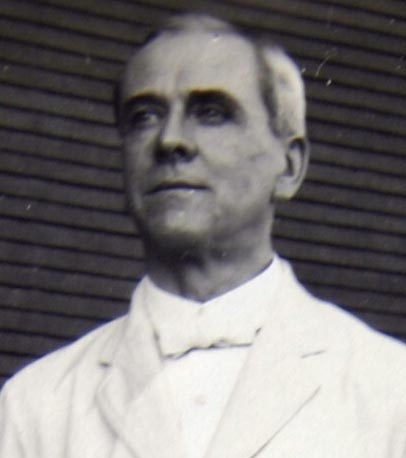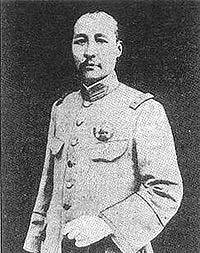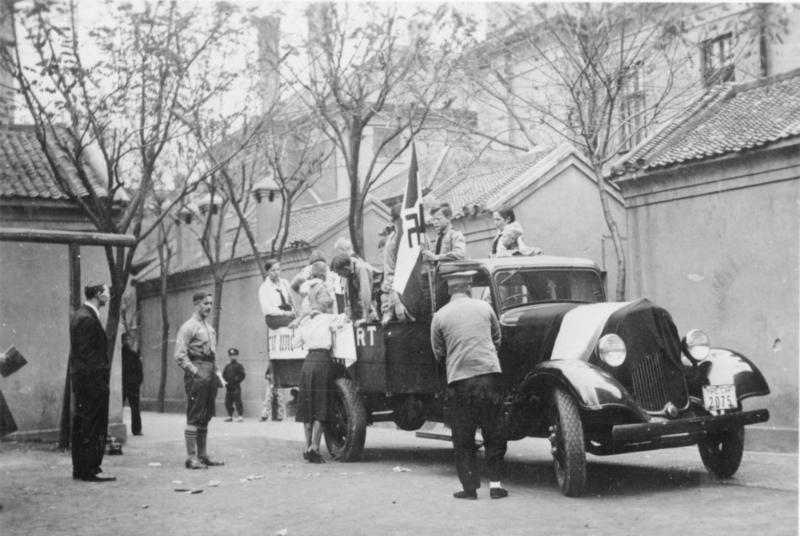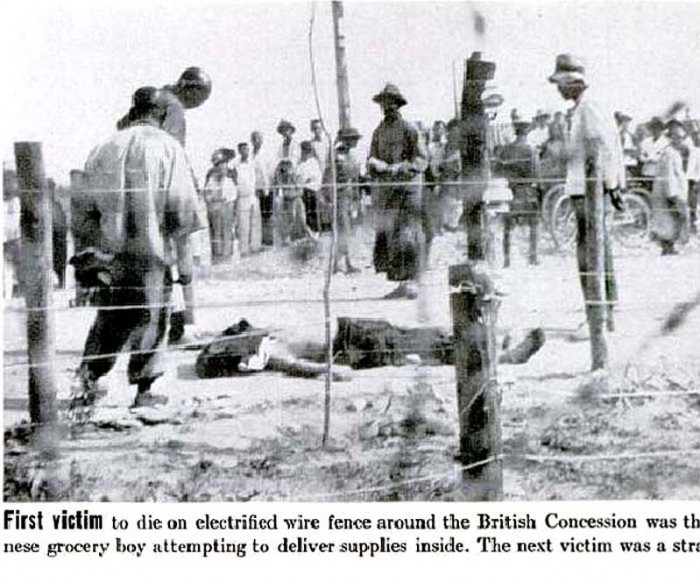No county or state charges filed against DAPL mercenary, paper trail leads to private military security companies, prairie fire threatens Standing Rock’s main camp, and inmates locked in dog cages
By C.S. Hagen
BISMARCK – The man who dressed as a “water protector” and reportedly drove his white Chevy toward Standing Rock’s main camp, armed with a semi-automatic Colt AR15, is a mercenary for Dakota Access Pipeline.
Kyle Thompson, of Bismarck, also known as “War Eagle” after a native naming ceremony ten years ago, according to a 2007 story published in the Bismarck Tribune, was arrested by the Bureau of Indian Affairs Thursday, October 27. He was an “armed agitator” who fired shots with his assault rifle, according to the Standing Rock Sioux Tribe Facebook page.
Thompson worked security for a company called Thompson-Gray LLC, according to paperwork found in his truck. The company’s legal trail, long and twisted, leads to private military contractors named Pathfinder Security Services/Consultant and AMGI Global Ltd. Co.
The Paper Trail
Insurance papers and an employee identification badge found in Thompson’s truck linked him to Dakota Access Pipeline, according to Dallas Goldtooth, campaign organizer for the Indigenous Environmental Network. The truck was licensed to Thompson-Gray LLC doing business as Knightsbridge Risk Management, of Springfield, Ohio, according to the insurance papers. The description of operations listed at the bottom of the paperwork is to protect to Dakota Access LLC, its parent and affiliates, its officers, directors, employees, and agents.
Thompson-Gray LLC is an active company established October 27, 2015 in Cincinnati, Ohio, under Silverton Consulting International according to the Ohio Secretary of State. The company has no paperwork on file with the North Dakota Secretary of State. In Ohio, however, Thompson-Gray LLC’s business scope includes security consulting and management services for “any legal service.” The company is considered by some to be an emerging leader providing solutions to the Department of Defense.
Charles Graham Clifton is listed as the owner of Silverton Consulting International. The company is ten months old, and has an identical business scope as Thompson-Gray LLC, according to the Ohio Secretary of State. One online review of the company was that it is “very shady,” and “does not pay its employees on time.”
Knightsbridge Risk Management is a private security firm also owned by Clifton and headquartered in Dallas that primarily serves the oil and gas industry. Its registration with the Texas Department of Public Safety has expired, but it is listed as a guard, guard dog, investigation, and security consultant company. Knightsbridge Risk Management is also registered in Colorado, where it is in good standing and established by Barbara Colliton of Ohio.
Knightsbridge Risk Management is active in western North Dakota, according to 2015 media reports. Another inactive company Clifton is linked to along with Grady Emmons is Precision Risk Management Group, LLC, according to the Florida Secretary of State, however; Emmons is listed as the registered agent for Precision Risk Management Group out of Saginaw, Michigan established in 2006, according to the Michigan Secretary of State. Knightsbridge Risk Management’s Texas company license expired on June 30, 2016, according to the Texas Department of Public Safety, and it lists Clifton and Colliton as owners.
Clifton is also the owner of AMGI Global, Ltd. Co., according to the Texas Department of Public Safety, and Pathfinder Security Services LLC operates under its name. Pathfinder Security Services was dissolved in 2010 in Wyoming, and its parent company, Pathfinder Tactical Inc., was dissolved for failure to pay taxes in 2011, according to the Wyoming Secretary of State. Clifton is reported as the qualifying agent for both AMGI Global and Pathfinder Security Consulting, a company that specializes in oil and gas security, is a private military contractor reportedly active in the United Arab Emirates.
“For whatever reason, he has always used multiple companies and multiple names,” Emmons said of Clifton. “Whenever he gets a new direction, he forms a new company.”
Clifton also charged to train his employees as owner and manager of Castle Peaks Training Center – license also expired – according to Texas Department of Public Security. Clifton is further listed as the director of the Humanitarian Defense Inc., a non-profit security organization.
Emmons and Clifton have worked together in the past, Emmons said, in fact, they used to be friends. “We had a falling out about this Dakota Access debacle,” Emmons said. Emmons is the owner of Precision Risk Management Group, LLC, a security company that also provides investigative solutions. “He reached out to me when this contract came into his hands.”
They fought over tactics; Clifton’s tactics were far too heavy handed, he said.
“I could just see the writing on the wall, and once I saw the dogs and the way he was handling some things, it was one of the best decisions I made in my life.”
The security companies involved during the day of the attack dogs, and the recent DAPL security procedures on law enforcement’s flanks last week were illegal, Emmons said.
“It was an idiotic move, and way outside of standard practice.”
As private security employees they are allowed to defend themselves, establish a perimeter, ask and then direct people to leave an area. “But when it comes down to a violent encounter, you don’t have the right to get violent with them if you’re not defending yourself. The point of where you’re kidnapping people and things like that, you become the aggressor. That’s the job for the police; it’s their decision. On the security side, you’re becoming the aggressor, and generally speaking that is illegal.”
Emmons said he would have used a different approach to the Dakota Access Pipeline controversy.
“I certainly wouldn’t have used dogs, and wouldn’t have had employees out there with assault rifles and handguns. This isn’t 1955 anymore. Guns and dogs don’t have anything to do with a protest. There’s no place for dogs, and certainly untrained dogs.” He showed videos to friends pertaining to the day of the attack dogs, and noticed the dogs were not trained well.
“I’ve dealt with protests in my career, and trying to handle people like this with more and more levels of force, it’s just going to lead to more situations like this. These people have very strong beliefs, right, wrong, or indifferent,” Emmons said. “You can’t think you can hit them with hammer, or use a scare tactic and then think things will go your way.”
He has heard that G4S is active in western North Dakota. “If it’s true, it’s probably one of their umbrella companies.”

Activists on top of burned out DAPL machinery, fires still burning in gas tank – photo by C.S. Hagen
A long paper trail jumping state to state, a crooked path of registered agents, leads to the security company G4S Secure Solutions (USA) Inc., registered in Florida with Corporation Service Company listed as its registered agent list. Corporation Service Company is a worldwide leader for business, legal, and financial services, according to its website.
An employee search in the Texas Department of Public Safety shows workers jump from G4S or G4S Secure Solutions formerly known as The Wackenhut Corporation to companies such as Knightsbridge Risk Management frequently. Knightsbridge Risk Management security officers Joshua Paul Franke-Hyland and Robert Alvarado both worked for G4S in 2013 and 2009 respectively.
Standing Rock camp attorney Angela Bibens said she also has heard of G4S involvement in western North Dakota. G4S denied any of their employees are working along the DAPL line, according to the company’s communication director Monica Garcia, and technically, she may not be wrong. However, there are shadows that link the security companies involved in the Dakota Access Pipeline and G4S.
G4S, a U.K.-based security company, goes by many nicknames such as the “Chaos Company” in an April 2014 article for Vanity Fair, and as “spy for hire” in Tim Shorrock’s 2009 book Spies for Hire. Historically, G4S is hired by companies and governments to enter dangerous situations such as Nigeria, Israel, Colombia, Iraq, Afghanistan, and now, in western North Dakota, although in an extremely twisted and complicated route.
G4S has registered companies registered in North Dakota, according to the North Dakota Secretary of State:
- G4S Compliance & Investigations, Inc., registered in 1997 in Bismarck
- G4S Retail Solutions (USA) Inc. registered in March 2015 and located in Bismarck
- G4S Secure Integration LLC, registered for protective and detective services in 2004 in Bismarck
- G4S Technology Software Solutions LLC registered in 2010 in Bismarck for security and building management software and services
- G4S USA, owned by G4S Secure Solutions (USA) Inc., had its license renewed in Bismarck in August 2015 and is authorized for security guard work and security systems consultation
- G4S Youth Services, LLC, established in 2012 in Bismarck and authorized for juvenile facility management.
The G4S press office did not return telephone calls or emails related to whether their companies have security personnel at the Dakota Access Pipeline, or what if any is the relationship between the companies involved today and G4S.
All efforts were made to contact Clifton and the companies he owns; telephone numbers were listed as non-working numbers or had busy signals; Clifton could not be reached for comment.
The “Mercenary”
Thompson’s alleged attack against activists came to a halt on Thursday evening after he was stopped by a SUV when it smashed into the side of his car, activists and videos report. He was chased into a nearby pond waiving his weapon, and was later arrested by the Bureau of Indian Affairs.
Thompson’s description of events posted Sunday on his Facebook page, and his Facebook profile, raise more eyebrows than answers questions.
“Three days ago on October 27th, I was in a situation in which myself and others were faced with the difficult decision to take another’s life or not,” Thompson said. “A decision in which most people are never faced with and I hope never will, a decision in which changes a person’s outlook on life forever.
“I’m not here to defend myself or the others who stood their ground on the opposite side, (opposite for some reason doesn’t sound like the right word to use, however it paints the picture for those who weren’t there), we both know damn well we did enough of it that day.”
Thompson was asked to take pictures of DAPL equipment on fire, he said. “So I attempted to go and do just that, nothing more nothing less.”
He primarily stayed on Highway 1806 until he was forced off the road. He said he was also attempting to leave the area “as directed by the protestors on 1806.”
“I drew out my rifle after my vehicle was disabled and over 300 protesters were rapidly approaching my location, a few had knives and were dead set on using those knives.”
He then retreated into the pond to escape being surrounded. He denied firing his weapon. “That rifle hasn’t had a single round pass through the barrel in well over three months, the FBI can confirm,” he said.
During the confrontation an activist fired a flare at him, and his truck was set on fire, he said.
“I’m not out there for the money, fame, or personal gain,” Thompson said. “I will never stop, at any cost, defending those who I care for and those who put their trust in me.”
His Facebook profile reports he works for Rock Point, a bar and grill, and he was a former “door kicker” for the U.S. Army. A December 2007 article published by the Bismarck Tribune reported Thompson returned from a 15-month tour in Iraq with the U.S. Army 1-89th, 2nd Brigade to a hero’s welcome. At a Bismarck airport former Three Affiliated Tribes Chairman Tex Hall also presented him with an eagle feather headdress, and he was previously given the name War Eagle at a naming ceremony.
“It meant a lot to me because of my heritage,” Thompson said in the article.
On Facebook, Thompson has liked pages such as Unicorn Riot, Native Lives Matter, and Young Americans for Liberty, but also liked Predator Tactics, a company that manufactures night hunting lights for outdoorsmen. He left the Army in 2013, and graduated from State University of New York at Oswego with a major in business administration, according to his Facebook Page.
But, according to documents found inside his vehicle, he also works for the Dakota Access Pipeline as private security. After activists cornered him in the pond, Bureau of Indian Affairs officers arrived and took him into custody. He was jailed in Fort Yates, bonded, and then released, according to Bibens.
Friends of his on Facebook inquired of his well-being. His reply was that he was fine, “Always, you know that.” He also thanked friends for defending him online. “I can only hope that this will open up some minds to what could happen when you push someone so far that you force them into doing something that cannot be undone. Luckily for them it was someone like me on that other end.”
“We are doing our own investigation,” Bibens, said. “It’s a little too soon to say, but there are some key witnesses who can give a truer version of what happened.” Bibens is also the ground coordinator for the Red Owl Legal Collective, and works with the National Lawyers Guild.
Bibens said there are loopholes when it comes to prosecuting such cases. Pending charges against Thompson must come from the federal government.
“White guy on the rez,” Bibens said. “This is a major crime, and reservations don’t have authority over major crimes. This is a felony; this isn’t a simple assault. Someone brandishes a killing machine, that’s a felony.
“But maybe it’s not so much of a thing if law enforcement that does have jurisdiction over this guy doesn’t pick up the case. There are predatory white men who go to the reservation and victimize… and they know they can get away with it because there is a huge loophole in the jurisdiction law. This is the same loophole in the jurisdiction of criminal offenses.”
“I’m not worried about this whole situation because I know that whatever happens will happen for a good reason,” Thompson said. “I will always be fine no matter what happens. If only this lesson reaches the ones who truly need it, then we will be able to call it a success.”
Kyle Loven, chief division counsel and media coordinator for the Federal Bureau of Investigation Minneapolis Office, was familiar with the incident, but refused to comment on Thompson’s situation, or any other aspects of the Dakota Access Pipeline controversy.
Morton County State’s Attorney Brian Grosinger did not reply to repeated requests for information on whether the county or any other state agency will be investigating or filing charges on Thompson. The North Dakota Secretary of State also did not return requests for information, and hung up the telephone halfway through a request.
Morton County Sheriff’s Department called Thompson a victim, and reported they were unable to confirm if any shots were fired. “The victim was instructed to get pictures of construction equipment,” Morton County Sheriff’s Department said in a press release. “In order to do so, the victim disguised himself so he would be able to gain access without being singled out as a construction worker.
“The man grabbed a rifle to defend himself, he retreated toward the Cannonball River and was pursued. No charges will be filed against this man as he was using the weapon to protect himself.”
Chairman of the Cheyenne River Sioux Tribe Harold Frazier said he will be seeking charges of attempted murder against Thompson.

Prairie fire east of Oceti Sakowin, or Big Camp – photo provided by Morton County Sheriff’s Department
Prairie Fire, Numbers, and Dog Kennels
Three days after Thompson’s arrest by the BIA, when law enforcement from four states violently cleared Standing Rock’s northern Treaty Camp, a fire ravaged the grasslands west of Highway 1806.
The fire was reported at 1 a.m., near Backwater Bridge, which is separated from the main camp, Oceti Sakowin, or the Seven Fires Council camp, by the highway.
“Mandan Rural Fire responded to the fire,” Morton County Sheriff’s Department reported. “However, due to the terrain, Mandan Rural was unable to access the fire.”
Winds swept the fire east, burning a large swath of prairie land owned by the U.S. Army Corps of Engineers. The land formerly belonged to the Standing Rock Sioux Tribe but was taken by the Corps after it was condemned. At 8:45 a.m., North Dakota National Guard units suppressed the fire. Black Hawk helicopters with 600-gallon water buckets assisted, Morton County Sheriff’s Department reported.
“For three hours they let that fire burn,” Bibens said. Her legal team, now fully staffed, is investigating the case as arson. “The hillsides are scorched. Somebody was talking about this was a controlled burn. Who does that at 2 o’clock in the morning?
“It was to cause fear and confusion. There’s video of someone with a flashlight walking along the ridge with fire following them. What does that tell you?”
More people than she can count reported injuries from Thursday’s events, Bibens said. “The numbers are stacking up. We’re taking instant reports. People are knocking on the tent before we open, and we’re there until 6:30 at night. It’s intense. It’s really intense.”
Treatment of the 117 people arrested on Thursday was “deplorable and illegal,” Bibens said. Activists were thrown into dog kennels at Bismarck’s airport; inmates’ forearms were numbered, an action many are comparing to the Nazi’s practice of tattooing Jews and others in concentration camps during World War II.
“Not only illegal, but dehumanizing to put people in dog kennels,” Bibens said. “They had this all planned out. People were denied their medication; diabetics were denied food in a timely manner, denied insulin. Just the medical neglect alone is illegal.
“We have a lot of people coming out of custody who have some stories to tell.”
Since August 10, 411 people have been arrested on charges related to resisting the Dakota Access Pipeline, according to Morton County Sheriff’s Department. Most, if not all of those arrested have been strip searched before incarceration, according to Bibens and activists. One woman was left naked in a cell overnight for the viewing of male guards, according to Bruce Ellison, a long-term criminal defense lawyer and legal team coordinator of the Lawyer’s Guild Mass Defense Committee.
On Monday, the Morton County States Attorney’s office charged 37-year-old Red Fawn Fallis with attempted murder, among other charges, after she allegedly fired three shots at law enforcement on October 27, according to Morton County Sheriff’s Department.
Since Governor Jack Dalrymple’s emergency declaration in August, the state has spent approximately USD 9 million of taxpayer’s money, according to the Morton County Sheriff’s Department.
Standing Rock Sioux Tribe Chairman Dave Archambault II has asked for an official U.S. Department of Justice investigation into the actions of both law enforcement and Dakota Access Pipeline. His plea has been heard in Fargo and city leaders have echoed the call, asking for DOJ boots on the ground at Cannon Ball. Over the weekend, the United Nations and Amnesty International announced plans to visit the Oceti Sakowin to collect information and record testimonies, according to media outlet Indigenous American Network.

















